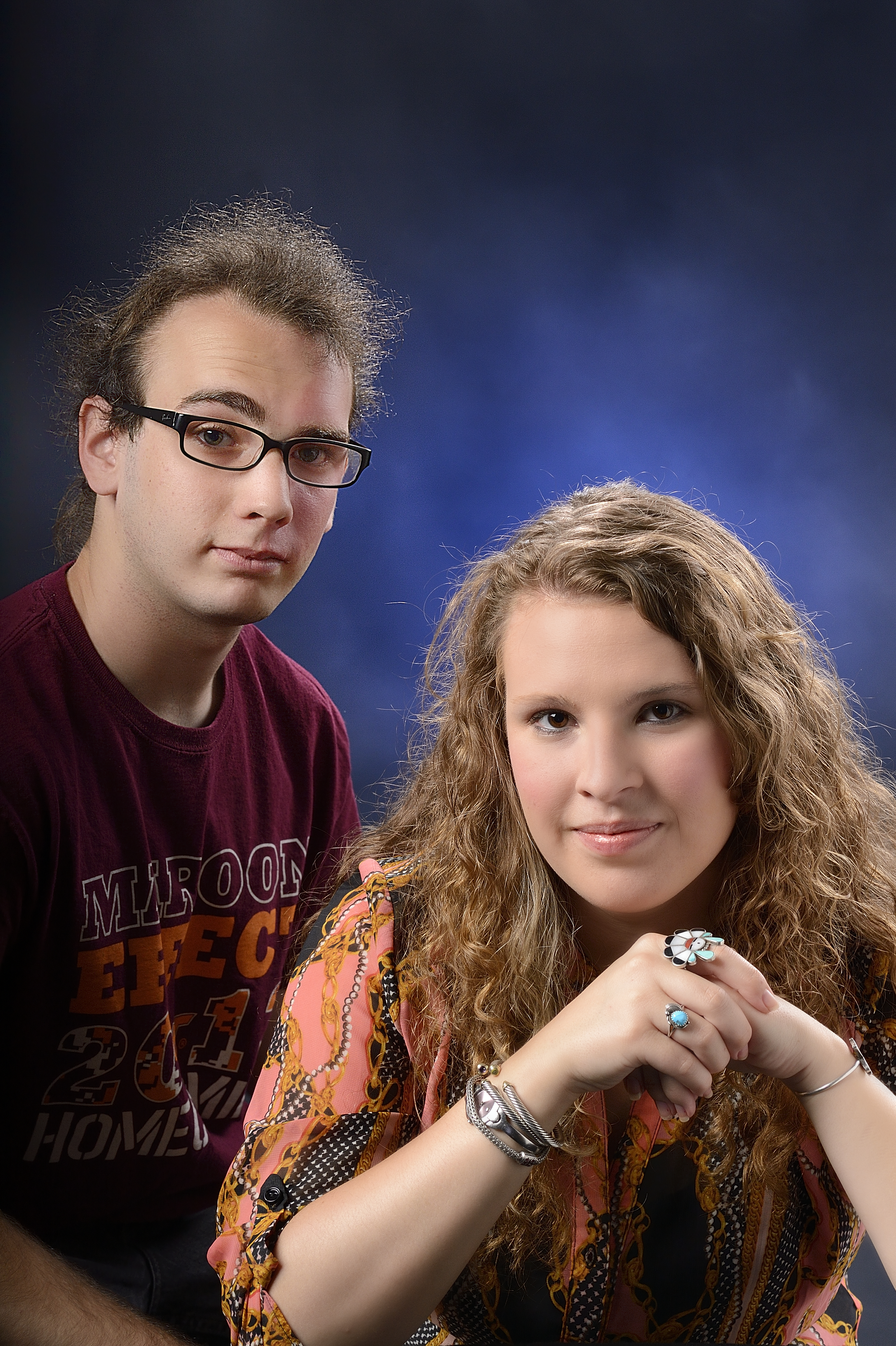First Year Experiences: Transitional course gives undergraduates research jumpstart

Travelling to an academic conference and presenting a paper may sound like the work of faculty but more and more undergraduates in the College of Liberal Arts and Human Sciences are taking advantage of these research opportunities.
Juniors Carley Frye and Mark Bowes have already presented their research, thanks to funding from the college’s Undergraduate Research Institute and a jumpstart into the science of academic inquiry from a First Year Experiences course that they took as first-year students.
Frye, of Wytheville, Va., is a junior dual major in communication and political science with a minor in leadership and social change. The semester after taking LAHS 1004: Introduction to a Research University, she began working with Craig Brians, associate professor of political science, and his undergraduate research team.
“At first, it was slightly intimidating only because I had never done research in political science, and I wasn't quite sure what to expect,” said Frye. “I realized that I enjoyed the process and concept of research. Create a question, find a method to answer the question, analyze the data, then discover the results -- ultimately answering your original question.”
Frye then assisted with a summer research project that evaluated “clicker” use in a large classroom. Thanks to an Undergraduate Research Institute travel grant, she attended the American Political Science Association's Teaching and Learning Conference in Long Beach, Calif., where she and another undergraduate presented their findings.
“Typically, the undergraduate researchers on my team are the only non-faculty I see at these conferences,” said Brians. “Carley has already presented on our research team at two professional national conferences, where faculty consistently mistook her for a grad student.”
Frye, a member of University Honors, continues to be involved with the “clicker” research and she is also helping with the First Year Experiences course as an undergraduate teaching assistant.
Bowes, of Virginia Beach, Va., and a junior majoring in history, also garnered an award for travel to the Virginia Social Science Association Annual Conference to present his paper titled “The Second Battle of Ceder Creek: Preserving History in the Shenandoah.” Bowers’ faculty mentor is Peter Wallenstein, professor of history.
“To be honest, I didn't realize how helpful the First Year Experiences course was until I took Historical Methods with Dr. Wallenstein,” said Mark Bowes. “Going into Methods, most people, I think, only have the vaguest of ideas of what they want to do their research on. All of the work that I did freshman year in [First Year Experiences] gave me a pretty firm idea of what I wanted to write on and it certainly gave me a head start on most of my classmates.”
Most of Bowes’ research was done in the library and online, looking through the primary sources and reading through secondary sources trying to find more primary.
“Dr. Wallenstein taught me so much, he made a daunting project enjoyable,” said Bowes.
“Using a wide range of sources, Mark connected the story of a Civil War battle in the Shenandoah Valley (and its significance then) with recent/current efforts to preserve the site,” said Wallenstein. “He did very impressive work, best in the class.”
Bowes took that project to a conference, also won honorable mention in the history department's Curtis Prize essay competition on Civil War and Virginia history.
“The First Year Experiences course is an interdisciplinary program built around the high impact practice of undergraduate research, an ongoing commitment of the college,” said Marc Lucht, interim director of the Undergraduate Research Institute. “The program serves as a springboard for further inquiry and for developing research skills.”
Lucht notes that research opportunities introduce students to a much richer experience than is found in most classrooms. “In addition to facts and theories, academic disciplines involve conversation, debate, discovery, creativity, frustration, surprise, and fun.”
Online resources available at the college’s Undergraduate Research Institute include
- A database of current research opportunities;
- A listing of undergraduate conferences;
- Steps on how to get started on a project;
- Individual advising appointments;
- Workshops;
- Access to a grant program that awards funding to students for conference presentations, research travel, and materials; and
- A mentor matching program connecting students and faculty.
The college also offers research-publishing opportunities with Philologia, a multidisciplinary peer-reviewed research magazine published annually by undergraduate students in liberal arts and human sciences.
Wallenstein, who has been involved with the Undergraduate Research Institute since its inception in 2005, sees “undergraduate research opportunities, in a regular class or in other settings, as a distinguishing characteristic, certainly a potential major benefit, which undergraduates can (and to my mind ought to) derive from studying at a comprehensive research university.”




